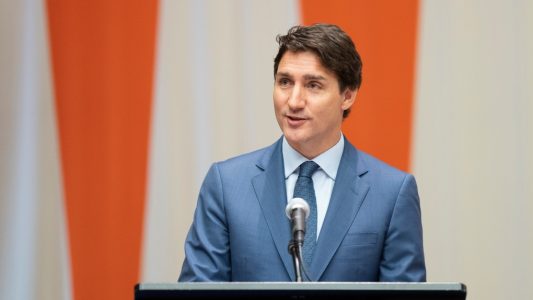Canadian Prime Minister Justin Trudeau’s government is introducing new measures to tighten standards on colleges, responding to criticism that Canada’s education sector is bringing in so many foreign students that it’s boosting pressure on housing and the labor market.
According to Bloomberg, Immigration Minister Marc Miller announced a framework on Friday that will push universities and colleges to set a higher standard for services, support and outcomes for international students, starting in time for the fall 2024 semester.
Schools that meet the higher benchmark will get priority for the processing of student visas, Miller said, and adequate housing will be one of the criteria.
Institutions also will be required to confirm every applicant’s acceptance letter directly with the Canadian government starting December 1, he said.
He explained that the process was designed to tackle fraud, following revelations that hundreds of Indian newcomers unknowingly arrived in Canada with fake college admissions letters.
In the coming months, Miller’s department will also review the post-graduate work permit program and introduce reforms to ensure it meets the needs of the labor market.
The plan comes amid growing concern that Canadian educational institutions rely too much on international students as a source of funding, Bloomberg said.
Foreign students are charged an average of five times as much as Canadian students, and colleges catering to foreigners have popped up in strip malls and temporary buildings, most notably in the Toronto suburb of Brampton, Ontario where Miller made his announcement on Friday.
“We know that there has been consistent underfunding of post-secondary education, particularly by provinces, depending on the province, over the years – and institutions are smart and have adapted to that,” Miller said at a news conference.
“That has gone through at times opportunistic fees that have been charged to international students to close a gap that is really an unnatural one and shouldn’t be the case in a country like Canada.”
Post-secondary institutions have increasingly relied on tuition fees as provincial funding as a share of revenue has declined from 42% in 2001 to 35% last year. Ontario, the country’s largest province, has also frozen tuition fees that can be charged to Canadians for the past three years.
In 2019 to 2020, foreigners paid 37% of tuition at Canada’s universities, while in 2021 those students paid an estimated 68% of tuition at Ontario’s colleges.
Many foreign students, on the other hand, use admission to college as a pathway to gain permanent residency in Canada. While Trudeau’s government has previously mulled introducing a cap on international student visas, Miller poured cold water on that idea Friday.
The number of foreign students in Canada has tripled in about a decade to more than 800,000 last year.
The experiences of international students are too complex for the federal government to “stomp in and pretend that it has all the solutions” in establishing a visa cap, Miller said.
Provinces have a primary role in accrediting learning institutions, he said. READ ALSO:
- “Diddy Will Go To Prison For Life”, Wendy Williams Claims
- Food Critic Opeyemi Famakin Reveals How LIRS Billed Him ₦80m For Taxes
- Haaland Signs New Long-Term Manchester City Contract
- Man stabs elder brother to death
- JUST IN: Dangote raises petrol prices to N955 per litre for bulk buyers
“The federal government is coming forward and opening its arms to our provincial partners, territorial partners, to make sure we all do our jobs properly,” he said. “If that job can’t be done, the federal government is prepared to do it.”
Bloomberg revealed that international education contributes more than C$22 billion ($16 billion) to the Canadian economy annually – greater than Canada’s exports of auto parts, lumber or aircraft – and supports more than 200,000 jobs, according to Miller’s office.
But the influx of foreign students has exacerbated housing shortages, leaving many without proper accommodation, and flooded labor markets in some regions where there aren’t enough jobs.
Miller’s announcement appeared aimed at private colleges and immigration consultants accused of exploiting international students for profit. He said a government investigation earlier this year identified nearly 1,550 study permit applications connected to fraudulent acceptance letters.
In most cases, the fraud was detected and the application was refused, but in about 450 cases, a permit was issued. A further review determined some were genuine students, while others were victims who unknowingly received fake admission documents, Miller said. – VANGUARD


